As January comes to an end, I wonder how many of you guys gave Veganuary a shot? For those who aren’t familiar, Veganuary is a challenge to try the vegan lifestyle for the month of January. It seems like everywhere I look these days, Veganuary is all around me here in Dubai, so I couldn’t think of a better time to tell you guys about my personal journey into the vegan lifestyle. When I embraced this lifestyle, it came as a shock to many friends and family. Honestly, three years ago, I would have never considered a vegan diet as something I would ever adhere to. In fact, I know I laughed at and judged a few people I know who became vegan (sorry).
I am guilty of having been unconscious of my dietary choices and how they affect our planet and apathetic to animal suffering. I’ve always been more concerned, rather, outraged at all the other moral failings of humanity. The human suffering that I have witnessed throughout my privileged life seems endless. I used to believe that there was no time to think of animal suffering when our fellow human beings were suffering so brutally at the hands of other human beings everywhere I looked. The world is full of so many problems and animal rights just wasn’t a top priority for me. Despite my efforts to help humanity by educating myself on the issues, donating to organizations serving those in need, and even serving on the board of a nonprofit, I never felt that things in the world were getting better. Don’t get me wrong, I am not belittling the efforts of volunteering time and money into charitable work. Personally, I just felt like all the good work and efforts that I supported amounted to the feeling of shoveling a driveway in the middle of a blizzard; any progress made is immediately buried by a new avalanche of fresh snow. Most of the time I felt helpless, powerless, sad and deflated, because I never felt like my efforts ever made a dent in the world’s problems. Then 2020 hit, and we all went into lockdown, and my world stood still. For the first time in a long time, I truly felt like I could see and think clearly.
Disclaimers And Intentions
The purpose of this essay is not to convince you of the undeniable fact that our world is suffering in so many ways because of the collective actions of human beings over many years. I’m not going to spew facts and data and the scientific evidence regarding climate change, and how eating less meat is one of the single most impactful way to combat that. This essay isn’t about convincing you of the multitude of scientific studies and data that support the claims that a vegan diet is more beneficial to human beings’ health. There are literally hundreds of resources out there about the benefits of eating vegan for both our health and for the health of our planet. I will not link or post images and videos of animals suffering undeniable cruelty and torture, not just in their deaths and the cruel ways they are slaughtered, but in the conditions of their lives. Again, this essay isn’t about calling out speciesism or making you feel guilty about your dinner plate. Not so long ago, I was an unapologetic omnivore who lived to eat, and not the other way around.
I’m writing this essay to share my personal journey into the vegan lifestyle and why I decided to ultimately make that decision. After 30 something years as an omnivore, I feel that a veil was suddenly lifted and my perspective completely shifted. Now, I feel tremendous guilt for my years of apathy. I am embarrassed at my former arrogance and ignorance and mostly at the harm that was inflicted on so many living creatures because of my choices. I keep thinking, if I only knew what I know now, I would have made this change so much sooner. I am grateful for the things that led me here and my intention with this is essay to share with you all how I got here. Some many not agree with me or see things the way that I do, and that’s ok. I am not here to pass judgment on other people’s perspective, I am just sharing my own authentic truth. I understand how many of you may think my choice is strange, extreme or unnecessary because not so long ago, I shared that perspective. As humans, we have the gift of growth and the ability to change our minds and shift our perspectives and this is my journey.
Food As a Love Language
I grew up in a culture where food is our love language . Everything revolved around or included food. We feasted in celebration and let others shower us with the comfort of food in our mourning. From weddings to funerals to religious celebrations, it was all about the food. More food was more love, more blessings, and more joy.
I have always been very fluent in our love language. Whether it was indulging myself or preparing meals for others, eating and cooking are the ultimate expressions of love in my world. After college, living in New York City, the greatest restaurant city in the world, I spent most of my free time, and most of my paycheck, trying out restaurants all over the city. I still remember the very first time, our good friend Jose introduced M and I to Le Cirque. This is back when it was still at the Palace Hotel on Madison Avenue. The guys didn’t even realize they needed dinner jackets and had to borrow one of the loaner ones. It was the first time I had foie gras and it was amazing and I was hooked on fine dining. At the time, there was nothing I wouldn’t eat or try at least once. I lived for those moments of pure pleasure as something new and exquisite landed on my tongue and tantalized my taste buds. I never stopped to think about how that thing I was consuming was once alive. I never thought about how this being was probably terrified as it was being killed or how horrible its’ entire existence probably was.
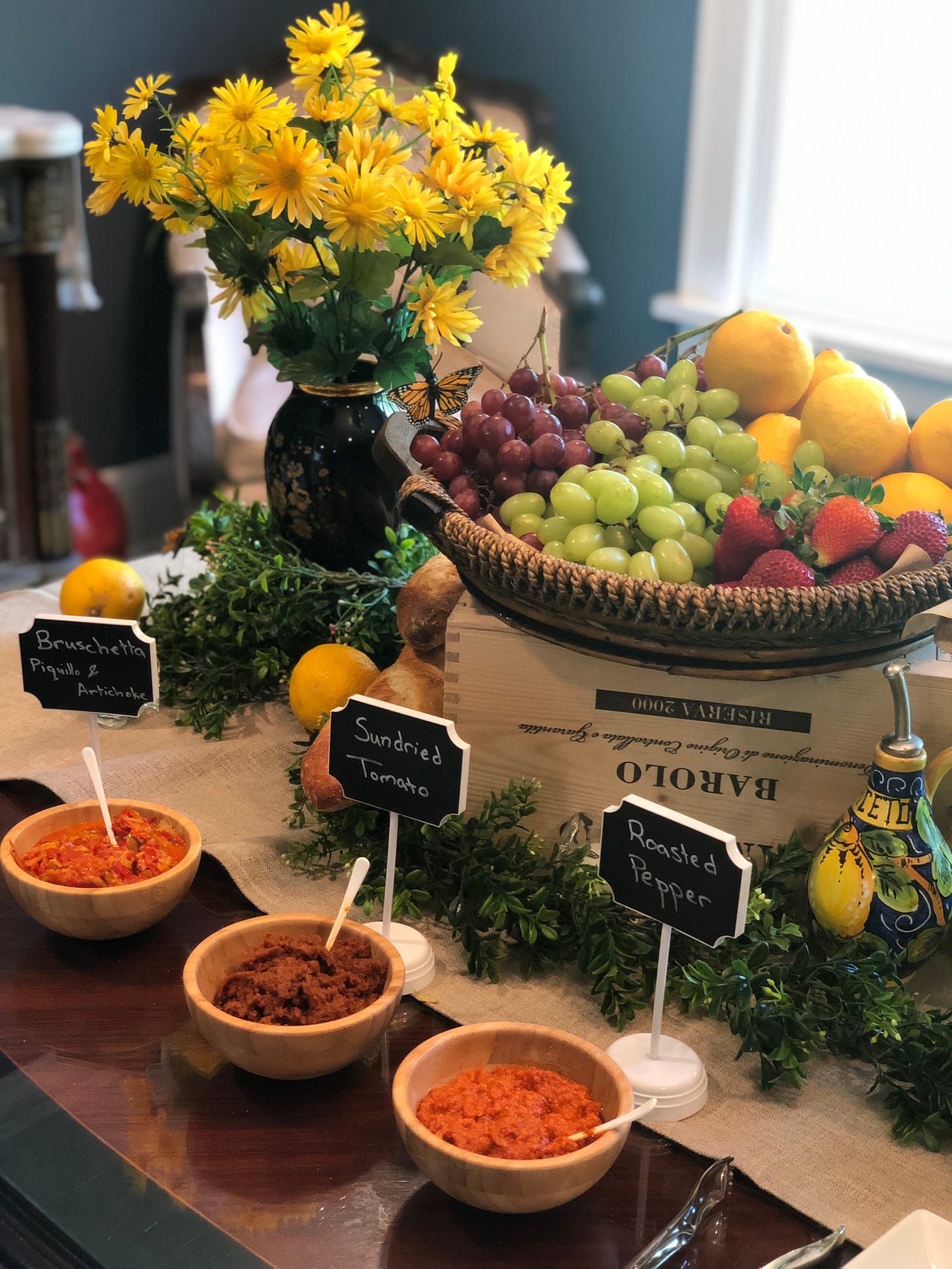
For years and years I enjoyed and consumed with reckless abandon. Hitting up new restaurants and trying new foods was my hobby. I was a Frank Bruni fan at the time, back when he was a restaurant critic, and I religiously awaited for his New York Times restaurant reviews so I can add to my list of must try restaurants. But then kids happened, and I began to focus less on going out and more on cooking and replicating the meals that I loved when we went out, to dishes I could make at home. By then, as I crept deeper into my 30s, I could no longer eat with reckless abandon. I started having real stomach issues that seemed to pop up out of nowhere. I can’t tell you how many date nights would end with me bent in half in excruciating pain in my abdomen. Through gritted teeth, I would smile and try to focus on enjoying a night out, while my stomach felt like it was getting shredded into pieces. When it was clear that this was a recurring problem, I started to take my health seriously and investigate with a team of doctors.
Let me spare you the boring details, but after over 2 years of testing and scans and elimination diets, I was left with this; “60% of abdominal pain is undiagnosed”, according to the last gastro doctor I saw, “ when you feel discomfort, take this pill”. Case closed. Yikes, I didn’t want to live on a pill. For this very selfish reason, I began to educate myself on nutrition, whole foods based diets and work with a holistic doctor. I eliminated many things from my diet, I cooked mostly at home, I was mindful and intentional with what I brought into my kitchen and how I prepared it. I started to feel better and the mystery pains started to fade. Overall the more that I shopped only from the fresh food aisles of the grocery store, the better I felt. The more I avoided eating out and processed foods, the better I felt and reintroducing those products back into my life, brought back the pain and discomfort.
Journey Into The Culinary Arts
I was so encouraged by the difference in how I felt, that I decided to take the next step of my journey and go to culinary school to hone my cooking skills. I enrolled in the Health Supportive Culinary Arts program, originally based on Dr. Annmarie Colbin’s Natural Gourmet Institute program. I chose this program because it wasn’t just about the cooking, the curriculum focused on nutrition and whole foods based diets. As I dived deep into the world of nutrition and culinary arts, I learned very quickly that healthy does not have to mean bland and tasteless. I was introduced to incredible ingredients and preparation techniques and recipes that delivered healthy options with satisfying satiating tastes that even a self-proclaimed foodie like myself thoroughly enjoyed. More and more, I started to gravitate away from animal products and towards plant-based food. Cravings for cheese or sugar, began to turn to cravings for nuts and seeds or veggies! Yes, I craved veggies. My mystery pains were now only present on the occasional nights when we ordered take out. My taste buds naturally started changing, and so I didn’t feel like I was really depriving myself or cutting anything I wanted out of my diet. It became abundantly clear, that there are many delicious, satisfying and satiating options when it came to plant based cooking. As my knowledge base expanded, I realized how much abundance the earth provides in terms of varieties of plants. My culinary world, which I thought was already pretty broad, exploded with possibilities as plants took a more prominent role in my cooking. I realized that the more animal products I shed from my repertoire, the more variety I was actually achieving in the foods I cooked. Instead of relying on just 3 animal sources for my cooking, my world was now suddenly wide open to hundreds of new plants, vegetables, seeds, nuts, and grains that were now contenders to replace my usual go to animal sources.
At culinary school, I was being taught to investigate where our food comes from, to make informed decisions as a culinary professional. This led me to learning about our food system and the power and concentration that exists in that system. I learned about how inequality and racism contributed to the lack of access to fresh foods in cities and minority neighborhoods. And I also started paying more attention to the animals and the modern industrial agricultural system. I watched slaughterhouse videos and learned about the horrors of factory farming. The deeper I dived into the facts, the more clearly I could see the rot, decay, cruelty and greed that has consumed our food system. This opened my eyes to learning about the impacts of animal agriculture on the environment. The amount of resources, which includes water, land, and crops that are required to fuel the growing demand for animal products overwhelmed me.


A Shift In Consciousness
When covid-19 hit our front door, stopping our modern world deep in its tracks, blanketing us all with stillness, I was forced to stop and had the chance to finally absorb all that new found knowledge. Without the noise and the insidious demands of modern life, I was forced to really take stock of the world around me. What I saw was a world full of chaos and noise, suddenly frozen in its tracks. In that moment, when the world stopped, I saw all the inequality that exists in plain sight that I chose to ignore every day. I saw all the suffering. I saw the broken systems and cycles of violence. And suddenly for the first time, I was able to take it all in. I was able to pinpoint the actions that I took every day to support the broken system that I spent so much time critiquing, complaining, and trying to make better. I realized how much time I spent worrying and complaining and going out into the world trying to spend my time, money and privilege to help make it a better place, while still shielding myself from the inconvenience of the truth. I accepted what society deemed “normal”, by going through the motions, thinking I had no choice, all the while my conscience knew all along what was wrong. If this all sounds dramatic, that’s because it was. I love this quote from Brené Brown, “People may call what happens at midlife “ a crisis”, but it’s not. It’s an unraveling- a time when you feel a desperate pull to live the life you want to live, not the one you’re “supposed” to live”. I like Brené perspective, and I think that this was the beginning of my unraveling.
I relied heavily on my yoga practice during the lockdown to keep me grounded and help get me through the anxiety that I, like so many others, was feeling. I enrolled in a yoga teacher training program, not because I wanted to teach yoga, but because I wanted to dive deep into yoga and deepen my practice. There was a lot of reading on the ethical principles of yoga that were part of the program and the one concept that really stuck with me was that of Ahimsa. Ahimsa means nonviolence and it is one of the main ethical principles of yoga. This idea of nonviolence, relating to everything you do in life, from speech to actions, really stuck with me. I started to view my actions in this world through that lens of ahimsa. The more I practiced and the more I meditated, this idea of ahimsa kept coming up in my mind. The timing of what I learned in my yoga training, coincided with my deep dive in my culinary program and everything I was learning about our food system and animal suffering. I became quiet unsettled with myself and I think that was the moment when my ideas about food and diet shifted from purely being a selfish pursuit of gratifying sensory pleasures or an attempt to get healthier and into a moral question of whether it was ethical to eat animals, knowing how much suffering they endured and how much suffering our planet endured.
Something I also started to do during the pandemic, was volunteer at an animal sanctuary. At the time, Tamerlaine Sanctuary, in Montague NJ, was one of the closest to my house. The first time I went, Peter, the founder of Tamerlaine, took me and my boys on a tour of their facility and we talked a lot about the animals that lived there, how they were rescued and his own personal journey into veganism. I had been to farms before with my kids when they were little. Tamerlaine is not a farm. The animals are not used for human consumption. They are taken care of and safe to live out their natural lives. As I watched Peter interact with the pigs, turkeys and cows that lived at the sanctuary, I was blown away by the animal’s demeanor. Shlomo, one of the resident turkeys, kept following us around the sanctuary wanting to play. He loved getting attention from Peter and he finally let us rub his back before we left. Peter called out to one of the pigs that was far out in the field by his name and he came running with excitement towards us and for a split second he reminded me of Buddy, our dog at home and his enthusiasm when we call to him from across the yard. I had never seen farm animals interact in this way before. It was evident that all these animals felt joy, excitement and playfulness, the way a dog does, the way humans do. It was a powerful experience that shifted my perspective forever. These animals deserve compassion and empathy. They don’t deserve the torture they endure in the modern industrial animal agriculture system.
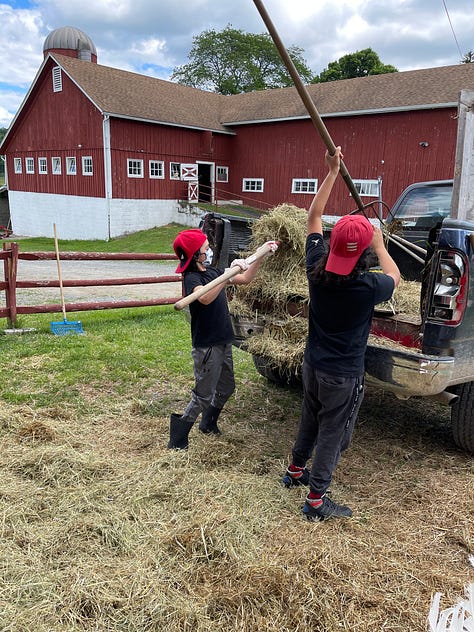
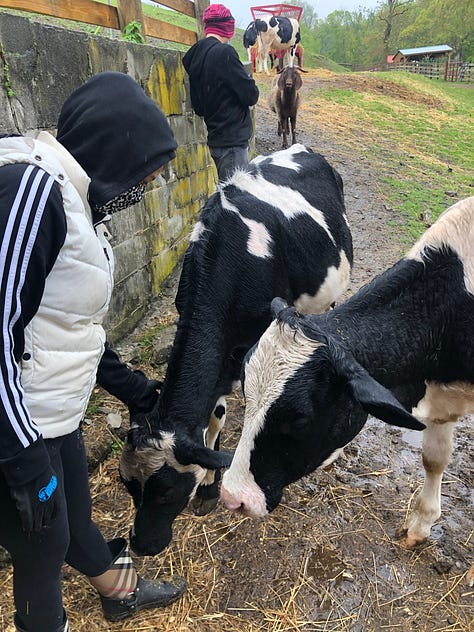
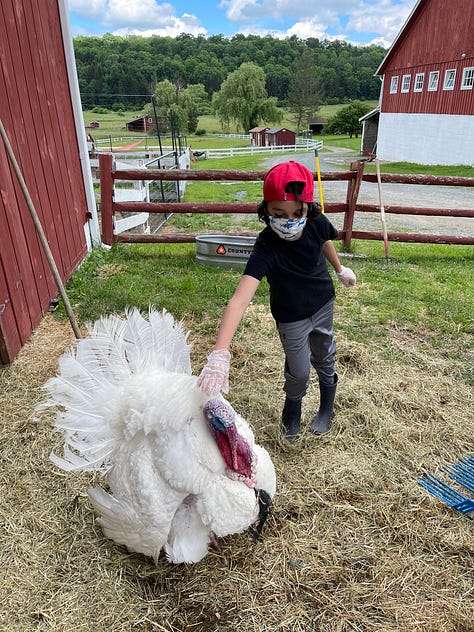
What the pandemic did for me was that it forced me into stillness and it allowed me the opportunity to really take an honest look at my actions and how they contribute to the whole picture. The pandemic took so much away from so many people; loved ones, jobs, food security, and homes. I am one of the very lucky ones, the pandemic gave me the gift of time. I used that time to dive deeper into stillness. My mind kept going back to the animals. Those sentient beings that are here with us , that we torture, and slaughter to make sneakers and a burger. I couldn’t stop thinking about all the horrible videos and images and articles about cruel slaughterhouse practices, the cries of pain, the gushing blood when flesh is cut open. In past years, when I encountered a PETA Activist, who wanted to talk about or share images of animal suffering, I would always look away. On social media, I would scroll past those posts . I believed that there were so many other sufferings in the world, this one was just unavoidable, we need to eat and buy shoes. But once I started looking at the videos and learning about the suffering, I was heart broken, disgusted and ashamed. I also realized that just because I’m looking away, doesn’t mean those things aren’t really happening. I was just shielding myself from the uncomfortable truths. And in doing so, I was denying my own ethical and moral believes, because I don’t think that harming sentient beings is ok. Yet I accepted those practices and my contributions to them, because it’s what society considers normal and necessary. Just because society says it’s normal, doesn’t mean we shouldn’t question it. How can I un-see or unlearn everything I know about animal suffering? How can I judge people in Asia or Africa who eat dogs, if I choose to eat a cow or a pig or a chicken? It’s just didn’t make sense to me anymore.
I saw myself complicit in a system of thinking that I truly no longer believed in. And I believe that being authentic to one’s self means not always following what society deems normal and acceptable. Being authentic to myself, is questioning the norms of society and measuring that up to my personal values. When I did that, I realized that harming animals, when we as humans have the capability to feed ourselves, without their suffering is wrong. Eating animals and supporting animal agriculture, when we know how much it contributes to climate change, is wrong. Eating animals, when it has been proven over and over again that they feel pain and feel emotions such as fear, is wrong. Death is death, no matter how gently you take a life away. Deep down every single human instinctually knows that harming another being is “bad”. At a young age, we learn that animals are our friends. We take our little babies and children to family farms where they can feed the animals and pet the goats. But we don’t allow our children to watch as the poor defenseless babies are yanked from their mothers and face untimely brutal murders, so that we can enjoy a milkshake or a piece of cheese.
The Challenges Of Change
Let’s keep it real, making the change was hard. FOMO is real and the fear of missing out on social events or fun new outings lurked in the back of my mind as I leaned into this lifestyle. Changing to a vegan lifestyle may seem hard because it requires more work and planning and intention, in a modern world that already makes so many demands of us. But at the same time, when it came down to it, it really wasn’t hard to make the change because it didn’t even feel like there was a choice. Once I started really seeing the animals for what they are, sentient beings who feel pain, to really see their suffering and understand that it was completely unnecessary, I couldn’t imagine consuming another living being again. The truth is that the hard part of making the change to veganism is to live in a society that is not built to cater to a vegan lifestyle. When you start to eat vegan, you immediately realize how far the exploitation of animals go, because you suddenly realize that everything around you has animal products. Societal norms have conditioned us to think in a certain way. Such as a meal without meat is not a complete meal because meat is protein. Changing those misconceptions is a challenge. I have major respect to the OG Vegans who have been out there the last 20 years or more sifting through the oceans of carnage (the supermarket) to find something to eat. Being a vegan today means that there are so many options out there- but it still takes effort and planning to actually be able to eat intentionally and compassionately in our society. For me, the inconvenience wasn’t a good enough reason to not make the change.
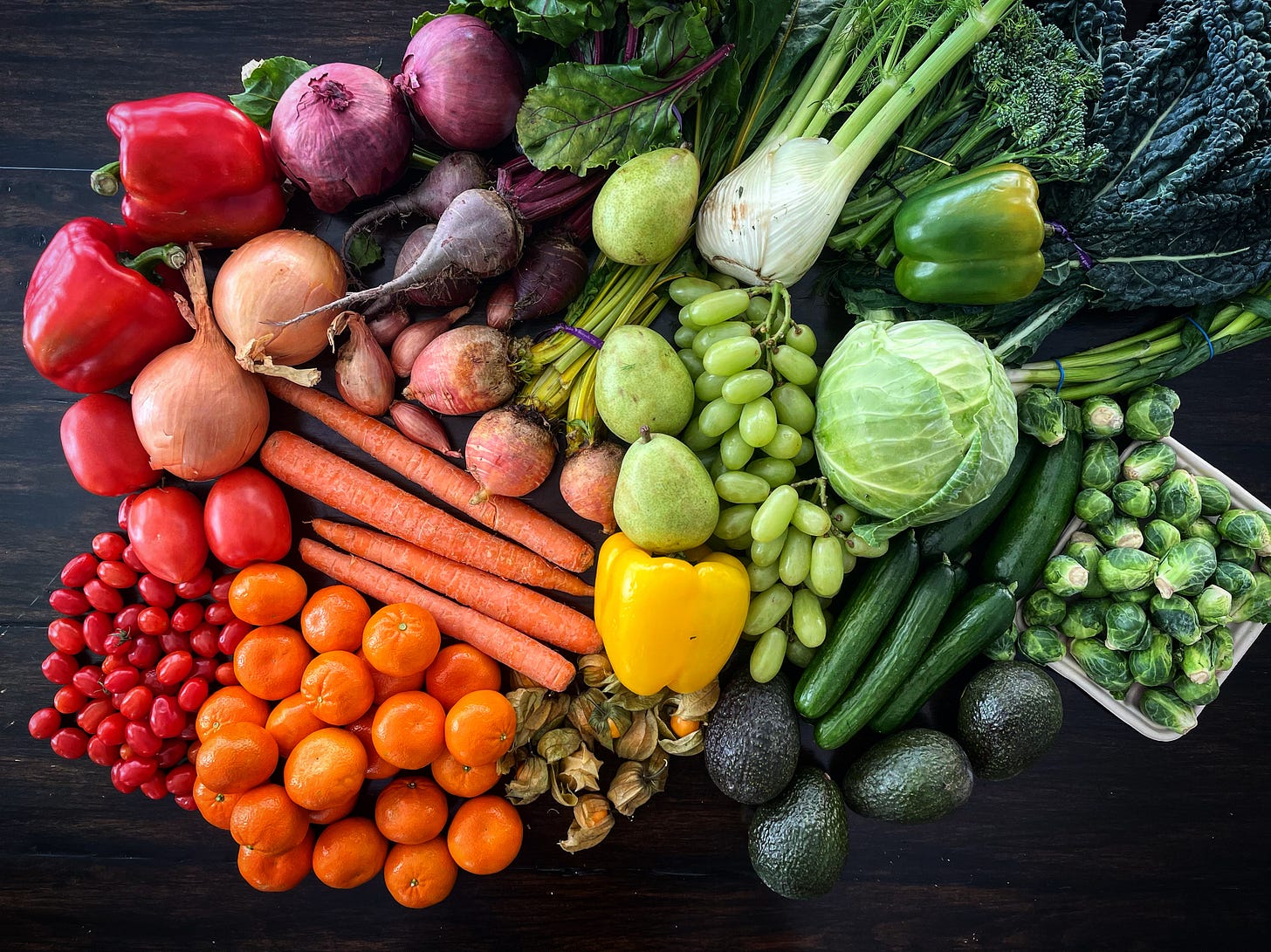
Three years into this journey and I feel great. There are definitely challenges; criticism and even ridicule from friends and family, limited food options at many events and restaurants, and the constant need to plan ahead and explain one’s choices, can be exhausting and frustrating. Remembering that we are not perfect humans when mistakes or slip ups happens and offering ourselves, and those around us some grace and compassion, rather than frustration, judgment or guilt has been key to getting past difficult situations. The benefits far outweigh the challenges. Physically I feel great and my mystery stomach issues are long gone. I don’t feel like I’m restricted or on a diet. The best change for me has been mentally. I feel that I have regained control over my values, and I feel empowered that I’m able to make a difference in the world. Every day, I can measure how much I am actually contributing. In a world, where most parents are doing whatever they can to stack the odds in their children’s favor, I sleep better at night knowing that I’m doing my part in saving resources, reducing emissions and modeling compassion, to help stack the odds in all our children's favor. Every day, I am fortunate enough to have a choice on where and how I spend my money. I have a choice of what I bring into my home. I have a choice as to what I prepare for myself and my children to eat. I have a choice as to what I put into my body. Those little choices that seem so inadvertent and small, compound daily into 3 meals a day, weekly into 21 meals, monthly into 84 meals and yearly into 1176 meals. We all have our callings in life and we each can make the most affective change in our own unique way. For me, I found that starting with myself and my little family, and the simple loving act of cooking and feeding ourselves, can be revolutionary and life changing. That is why I choose to eat vegan. I simply found this suffering, out of all the other sufferings in the world, to be the one that I can end every day. The easiest thing for me to control is what I put on my plate and what I choose to put in my mouth. And that has empowered me more than anything else that I have ever done in my life.
I will leave you with the below poem from Lao-Tse, a 6th century Chinese Taoist philosopher. I believe it poignantly delivers wisdom that I wholeheartedly agree with and very humbly add to; If there is to be peace in your heart, there must be peace on your plate.

If you want to learn more about my vegan journey, have any questions or need any advice on going vegan, please feel free to reach out!
With Love,
Angie



